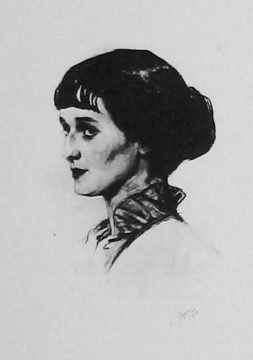 In the L.A. Review of Books:
In the L.A. Review of Books:
Anna Akhmatova was born in Odessa in 1889, but lived most of her life in Saint Petersburg, the city with which so much of her poetry is intimately connected. She frequented The Tower, the famous literary salon of the symbolist poet Vyacheslav Ivanov, and in 1910 she married fellow poet Nikolay Gumilyov. The couple were divorced in 1918, three years before Gumilyov was executed by the Bolsheviks.
Akhmatova achieved fame with her first collection of poems, Evening, published in 1912, and her subsequent collections Rosary and While Flock consolidated her reputation as one of Russia’s leading poets during the period preceding the October Revolution. After 1917 she took the conscious decision to remain in Russia, rather than join those of her fellow writers who were opting to go into exile in the West. Following the publication of the second edition of Anno Domini MCMXXII in 1923 she found herself increasingly subject to censorship, and in 1946 she was expelled from the Soviet Writers’ Union in the wake a notorious speech by the Communist Party cultural boss Andrey Zhdanov, in which he described her as “a cross between a nun and a whore”; but although she faced much personal hardship and a protracted poetic silence as a consequence of her decision to remain in Russia, she was also able to create Requiem, her great affirmation of solidarity with the victims of the Stalinist purges. After Stalin’s death in 1953 the restrictions on Akhmatova’s work were gradually relaxed and a selection of her poems, entitled The Course of Time, was published in 1958. She died in Moscow in 1966.
More here.
